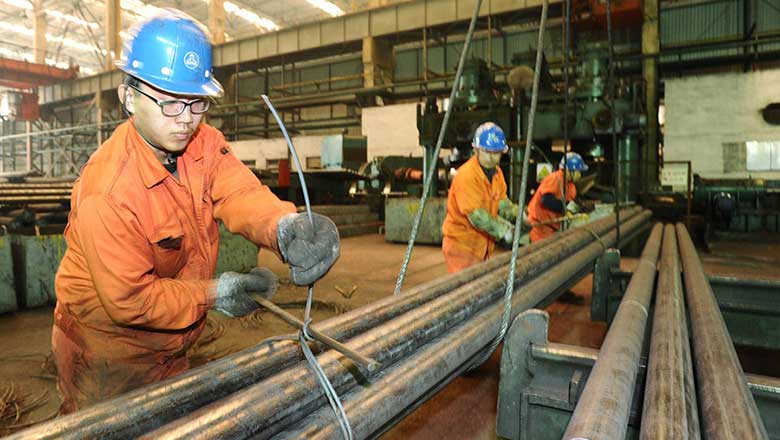Targeting Mars
Updated: 2016-04-06 08:05
By Andrew Moody(China Daily)
|
||||||||
After Tsinghua, he helped build a global innovation practice at a management consultancy before running Glorad, which has a base at Shanghai's Tongji University.
One area where China arguably has not been as fast as the US is in space exploration. American Alan Shepard went into space in 1961 and it took just eight years for Neil Armstrong to be the first man to walk on the moon. China had its first man in space in 2003, but is not expected to land an astronaut on the moon until 2023.
"I suppose it is like Christopher Columbus sailing to America. After he had done that, it was hard to replicate.
"The purpose of going to the moon now is not the achievement itself but the commercial aspects of space exploration. It is not about planting a flag but about having permanently manned stations on the moon."
Many believe that China is likely to be the first to land a person on Mars by, according to some estimates, 2060. The return journey may take at least 21 months.
"I wouldn't be surprised if China gets there first," he says.
Despite the massive investment in research and development in China, some argue that creativity here is stifled by hierarchical structures.
Yet, he says, there's emphasis on education, which in turn can drive innovation.
"And, that is where China's advantage currently lies."
Contact the writer at andrewmoody@chinadaily.com.cn
- More cities take bonus and penalty in air pollution
- Shanghai police release list of 36 drivers banned for Life
- Police relax rules impeding delivery drivers
- Official's photos an unusual attraction in Chinese village
- 438 Chinese police officers die on duty in 2015
- Chinese 'parachute kids' flock to US schools
- Xi: Talks 'only correct way' for China, ROK
- Xi to Obama: Disputes should be managed
- Cypriot court remands in custody man suspected of hijacking EgyptAir flight
- Govt eyes luxury tourists amid concerns over safety
- Sleep tight and don't let sharks bite at Paris aquarium
- Aung San Suu Kyi appointed as Myanmar's new foreign minister

 Top Chinese leaders attend voluntary tree-planting in Beijing
Top Chinese leaders attend voluntary tree-planting in Beijing
 Zhouzhuang water town viewed through artistic eyes
Zhouzhuang water town viewed through artistic eyes
 8 trends of major price movements gauging China's economy
8 trends of major price movements gauging China's economy
 Migrant workers back home with their family
Migrant workers back home with their family
 Microsoft embraces artificial intelligence
Microsoft embraces artificial intelligence
 Yao Ming introduced to Hall of Fame
Yao Ming introduced to Hall of Fame
 The world in photos: March 28 - April 3
The world in photos: March 28 - April 3
 Discover beautiful China in spring blossom (V)
Discover beautiful China in spring blossom (V)
Most Viewed
Editor's Picks

|

|

|

|

|

|
Today's Top News
Marriott unlikely to top Anbang offer for Starwood: Observers
Chinese biopharma debuts on Nasdaq
What ends Jeb Bush's White House hopes
Investigation for Nicolas's campaign
Will US-ASEAN meeting be good for region?
Accentuate the positive in Sino-US relations
Dangerous games on peninsula will have no winner
National Art Museum showing 400 puppets in new exhibition
US Weekly

|

|







